Choosing a healthy cooking oil while staring at the fortress of oils at your local grocery store can seem like a daunting task. There are so many different types of cooking oils available on the market, you may not know how to begin to whittle down the options.
For starters, cooking oils tend to vary when it comes to taste. There’s a reason most restaurants serve olive oil and vinegar as salad dressing instead of corn oil and vinegar. Some cooking oils are not meant to be eaten as-is and need to be cooked.
But you have to keep in mind that not all oils can withstand the heat of cooking. This is where choosing an oil with the right smoking point becomes more important. The wrong oils can degrade, burn, and produce harmful compounds when cooked at high heat.
The science still isn’t completely clear on just how much of an effect burned or “oxidized” oils have on our health, but most evidence indicates it’s best to play it safe.
- Cooking Oil Basics: Smoking Points
- The Breakdown of Fat in Cooking Oils
- Healthiest Cooking Oils
- Storing Cooking Oils
- Cooking Oils to Avoid
Table of Contents
+Cooking Oil Basics: Smoking Points
 Every oil has a smoking point.
Every oil has a smoking point.
A smoking point is exactly as it sounds: the temperature at which your oil starts to show visible signs of smoke.
But smoke is just what you see on the outside.
The hidden workings of what you can’t see is that your oil is breaking down and producing potentially carcinogenic compounds, which can be dangerous for you in the long run.
Here’s a simple rule to follow: if you’re seeing thick smoke during the cooking process, your oil is not meant to be used at that high of a temperature.
The Breakdown of Fat in Cooking Oils
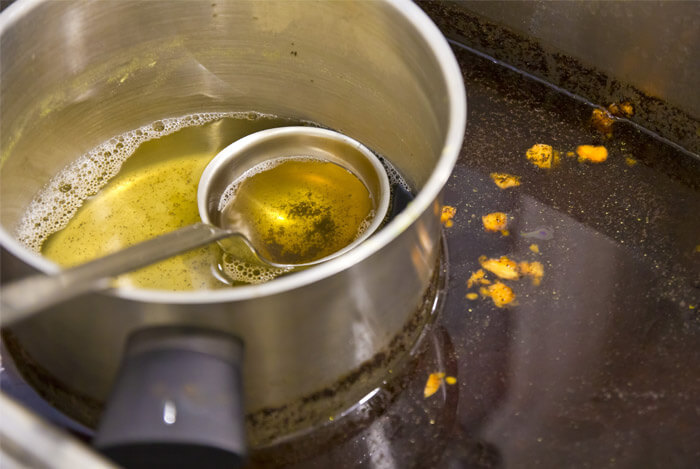 Basically, all oils contain a combination of three fats: monounsaturated, polyunsaturated, and saturated fats.
Basically, all oils contain a combination of three fats: monounsaturated, polyunsaturated, and saturated fats.
Fats should not be completely removed from your diet since they provide key components necessary for your body to function.
Let’s not kid ourselves here though. Cooking oils are definitely high in fat,and are easy to overeat.
The trick is to find oils that contain a healthy balance of monounsaturated fats, polyunsaturated fats, and saturated fats.
Monounsaturated fats and polyunsaturated fats fall under the category of unsaturated fats.
You can find monounsaturated fats in places like avocados, almonds, pecans, hazelnuts, pumpkin seeds, and in cooking oils like olive, peanut, or canola.
Polyunsaturated fats can be found in oils such as flaxseed, soybean, corn, or sunflower.
Saturated fats are often vilified, but most research indicates they’re fine in moderation.
The one thing almost everyone agrees on is that trans fats are best kept as low as possible.
Healthiest Cooking Oils
The following six oils are your healthiest options when compared to the dozens of choices you have.
If your cooking involves high heat such as searing or browning, you’ll want to choose between avocado oil or almond oil.
1. Avocado Oil
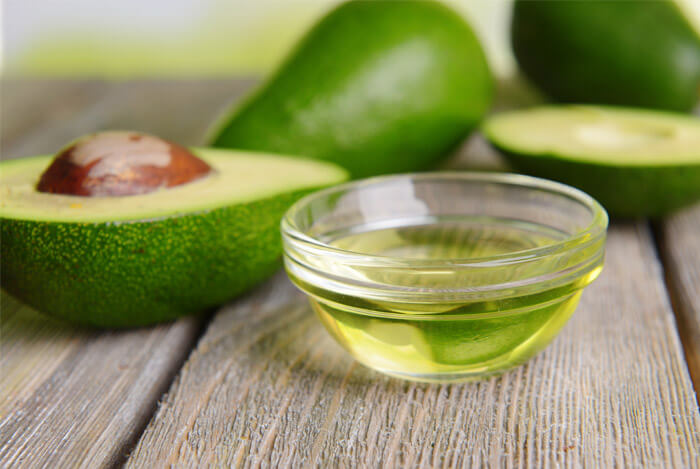 Pressed directly from avocados, this oil is heart healthy thanks to its richness in monounsaturated fat. Avocado outshines olive oil in the heat department since it has a higher smoke point, making it ideal for a majority of high heat cooking methods.
Pressed directly from avocados, this oil is heart healthy thanks to its richness in monounsaturated fat. Avocado outshines olive oil in the heat department since it has a higher smoke point, making it ideal for a majority of high heat cooking methods.
2. Almond Oil
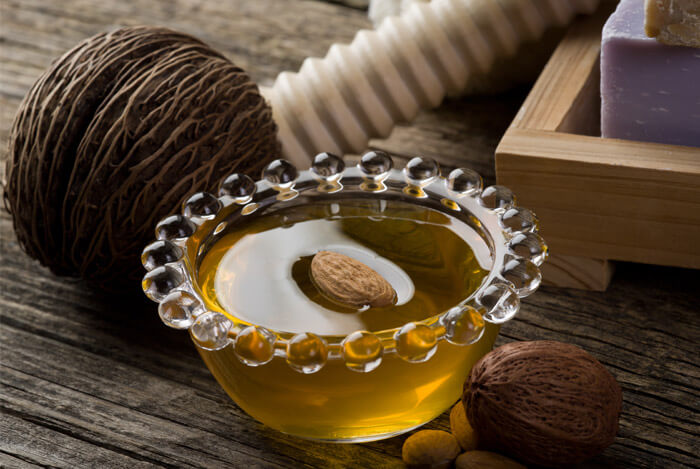 Almond oil was probably not on your list of oils to buy, but it’s certainly worth consideration.
Almond oil was probably not on your list of oils to buy, but it’s certainly worth consideration.
It has a slightly higher smoke point than olive oil, and a unique flavor many enjoy.
3. Extra Virgin Olive Oil
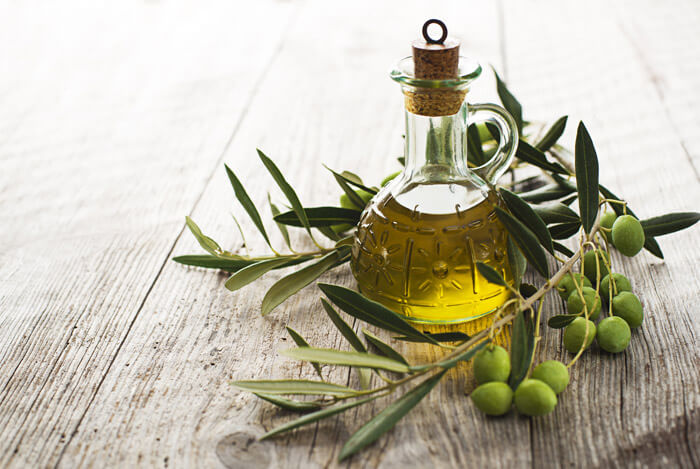
Olive oil has been studies for years as a way to improve cardiovascular health, and most research indicates it’s a great addition to a healthy diet.
4. Macadamia Nut Oil
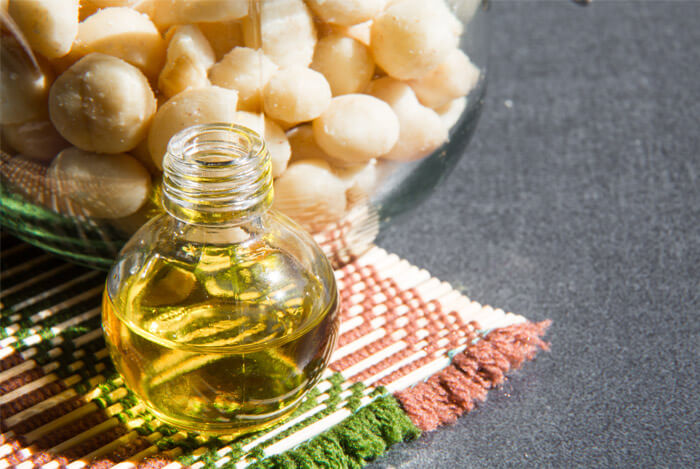 Macadamia nut oil is another uncommon oil that you may not have considered.
Macadamia nut oil is another uncommon oil that you may not have considered.
Mostly comprised of monounsaturated fats, macadamia nut oil is loaded with healthy fats. In fact, macadamia nut oil contains a higher percentage of monounsaturated fat than most other oils and is relatively low in both saturated and polyunsaturated fats.
Next, we have an oil that’s ideal for cooking at low heat temperatures. When sautéing lightly, simmering sauces, or baking food on low, coconut oil is a great option.
5. Coconut Oil
 Coconut oil has been sparking debates amongst nutritionists for years. Some argue that the high saturated fat levels make it anything but healthy, while others advocate that having high, healthy saturated fats is actually a benefit in and of itself.
Coconut oil has been sparking debates amongst nutritionists for years. Some argue that the high saturated fat levels make it anything but healthy, while others advocate that having high, healthy saturated fats is actually a benefit in and of itself.
Most of the research indicates it’s best to consume it in moderation, like most other saturated fats.
The main benefit of coconut oil in cooking is that it’s highly stable under heat.
The last oil on our list hates heat and should be consumed raw. I’m talking about flaxseed oil.
6. Flaxseed Oil
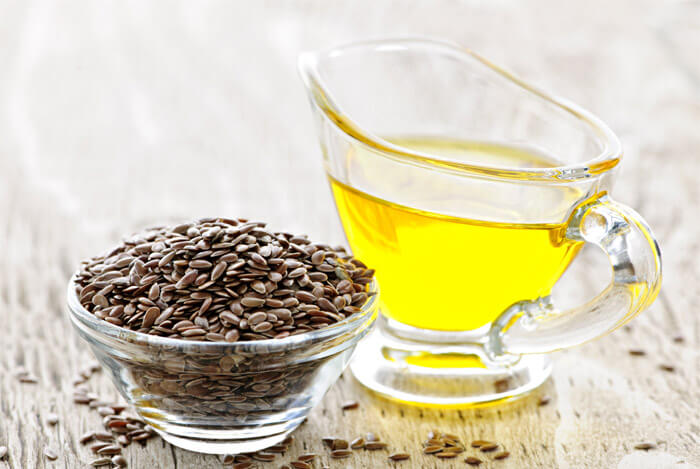 Flaxseed oil is also marketed under the name linseed oil. Flaxseed oil is popular among vegans who don’t eat fish or take fish oil supplements because flaxseed contains omega-3 fatty acids without being an animal byproduct.
Flaxseed oil is also marketed under the name linseed oil. Flaxseed oil is popular among vegans who don’t eat fish or take fish oil supplements because flaxseed contains omega-3 fatty acids without being an animal byproduct.
Now that you have a general idea of what healthy oils to buy, you’ll need to know how to store them properly because oils turn rancid easily which can diminish their taste and health benefits.
Storing Cooking Oils
 I find that most people don’t even realize that oils can turn rancid.
I find that most people don’t even realize that oils can turn rancid.
You’ll want to store your oils properly from day one. Do not underestimate the value of this step – it’s extremely important. If you’ve ever noticed a bad taste or smell to your oil, it’s time to toss it and start fresh. Consider it a lesson learned.
To prevent your flaxseed oil from turning rancid, you’ll need to keep it in the refrigerator at all times.
It can also help to keep avocado oil in the fridge and in a dark container to ensure its freshness.
You may notice that some of your oils turn cloudy when you pop them in the refrigerator. Don’t worry, that’s just the oil growing slightly thicker with cold temperature.
One thing that surprised me during my research on olive oil, is its limited shelf life. Many people, including myself, don’t realize that the shelf life for olive oil is less than six months.
Therefore, unless you use large quantities, you’ll want to buy your extra virgin olive oil in the smallest size to meet your needs so you can reap its antioxidant boost before it loses its powers.
Cooking Oils to Avoid
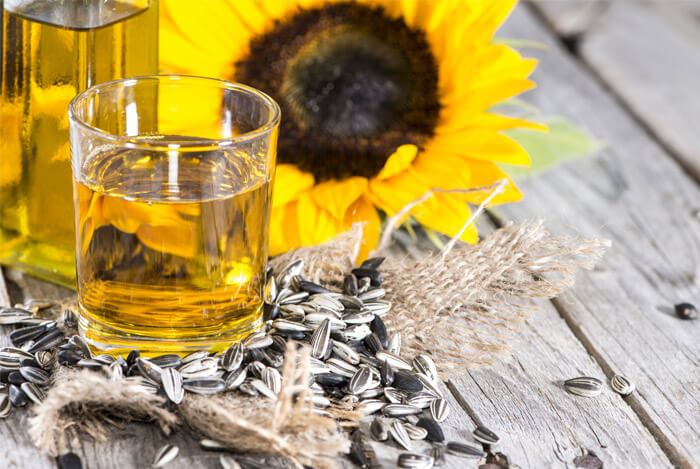 Despite the fact that oils are comprised of a combination of fats, the fat ratios in some oils are more unhealthy than others.
Despite the fact that oils are comprised of a combination of fats, the fat ratios in some oils are more unhealthy than others.
You generally want to limit your consumption of oils extremely high in omega-6, since we tend to get far more of those than omega-3 fats. Some foods high in omega-6 include:
- Soybean
- Corn
- Canola
- Sunflower
- Safflower
- Soybean
Oils can be a healthy part of your diet, but you should also exercise some care in which ones you use and how you use them.










